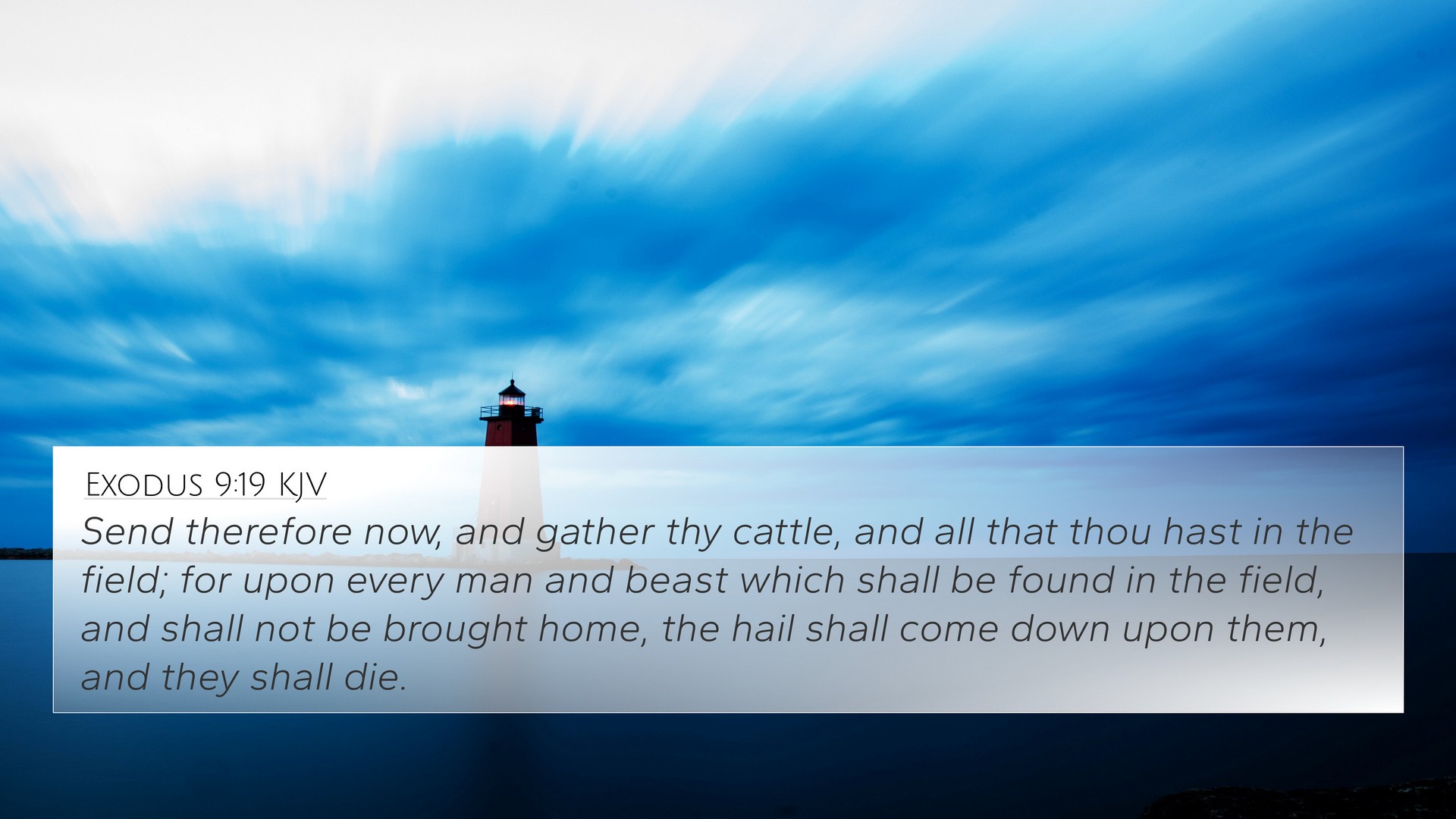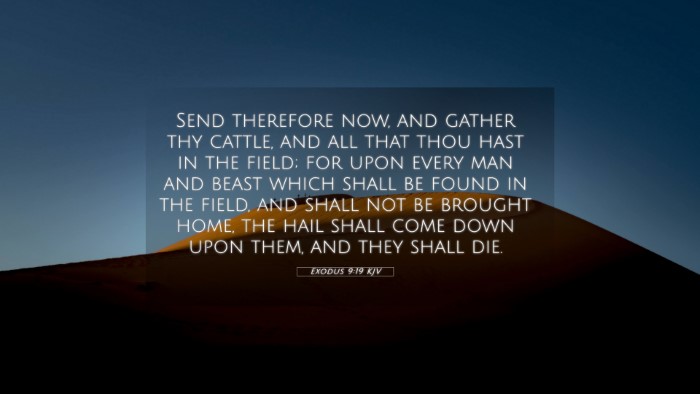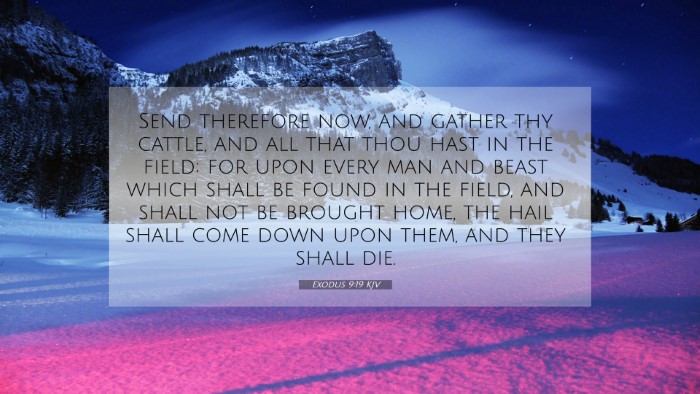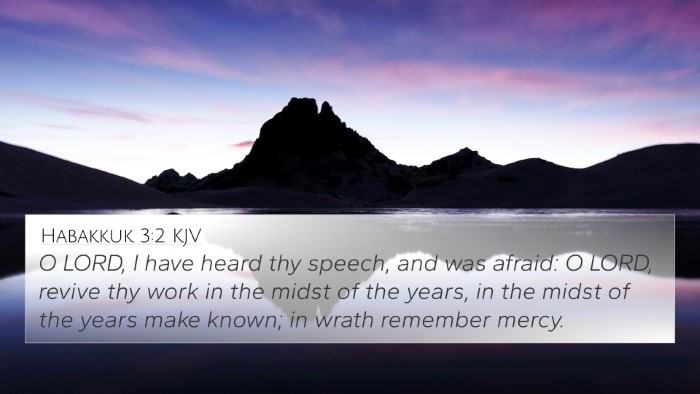Understanding Exodus 9:19
This verse reveals a significant moment during the plagues God sent upon Egypt. Exodus 9:19 states:
"Therefore send now and gather your livestock and all that you have in the field, for the hail shall come down on every man and every animal which is found in the field and is not brought home; and they shall die." (Exodus 9:19, NKJV)
The underlying meaning of this admonition focuses on the urgency of God's warning to Pharaoh and the Egyptians, demonstrating both God's power and mercy.
Insights from Public Domain Commentaries
Matthew Henry's Commentary
Henry emphasizes the warning aspect of this verse as a call to repentance and action. His insight highlights:
- The distinction between those who heed God's warning and those who ignore it.
- The mercy of God in offering a chance to protect their lives and property, underscoring His justice intertwined with grace.
Albert Barnes' Commentary
Barnes explores the significance of livestock in ancient Egypt, reflecting on economic stability:
- He notes that the hailstorm posed a direct threat not only to human life but to Egypt's agricultural wealth.
- This calamity would serve as a manifestation of divine judgment against Egypt’s obstinacy.
Adam Clarke's Commentary
Clarke provides a historical context, indicating the severity of the hailstorm:
- He elaborates the potential devastation and loss, driving home the effect the plagues had on Egypt's psyche.
- Clarke also points out the supernatural aspect of the plagues, reinforcing the belief in God’s power over natural elements.
Key Themes and Cross-References
This verse encapsulates themes of divine forewarning, judgment, and the offer of mercy. It invites exploration through various related scriptures:
- Exodus 9:16: This verse precedes the hail warning and emphasizes God's purpose in raising Pharaoh to display His power.
- Exodus 8:22: God's distinction between Egyptians and Israelites highlights His sovereignty.
- Exodus 10:7: Pharaoh's servants recognize God's power and the consequences of his disobedience.
- Job 38:22-23: God speaks of His control over the weather, significant in understanding His authority in Exodus.
- Psalms 105:32-33: These verses recount the plagues as acts of divine judgment, making a thematic connection.
- Jeremiah 51:25: A prophetic declaration of judgment, linking the theme of divine retribution.
- Matthew 24:21-22: Jesus speaks of a time of great tribulation, echoing the themes of Exodus.
- Revelation 16:21: The final judgments resonate with the plagues of the past, illustrating God's ultimate authority.
- Isaiah 54:16: An acknowledgment of God as the creator of natural elements, showcasing His power.
- Lamentations 3:38: Affirms that both good and evil come from God, highlighting His sovereignty over all situations.
Thematic Connections and Interpretations
This verse serves as a bridge for deeper thematic connections between the Old and New Testaments, encompassing God’s justice and mercy:
- The clear directive by God for the Egyptians to gather their livestock illustrates His characteristic patience.
- The emphasis on taking action resonates with New Testament verses that call for readiness and repentance, such as Matthew 24:44.
- Understanding the plagues in Exodus as a trial leads readers to reflect on future judgments discussed in the Gospels and Revelation.
Conclusion
In studying Exodus 9:19, readers are encouraged to reflect on the urgency of responding to divine warnings, the consequences of disobedience, and the deep connections inherent in the biblical narrative. Utilizing tools for Bible cross-referencing can enrich this understanding:
- Explore comparisons and contrasts between plagues and future prophetic texts.
- Utilize a Bible concordance to find cross-references that illuminate similar themes of warning, judgment, and mercy.
- Engage in cross-reference Bible studies to deepen comprehension of God's sovereignty throughout Scripture.



